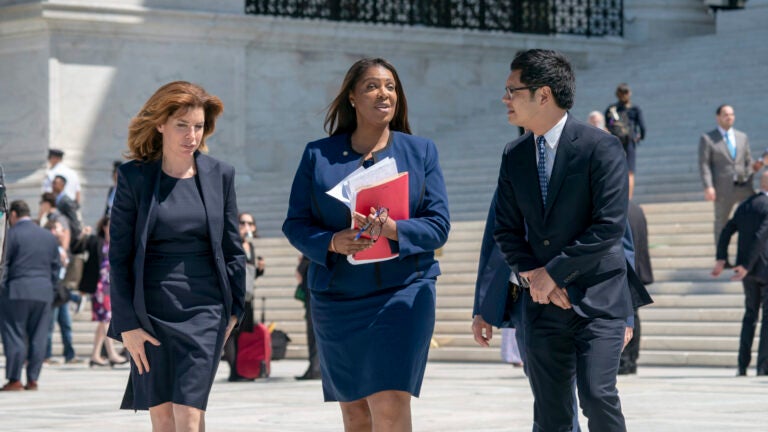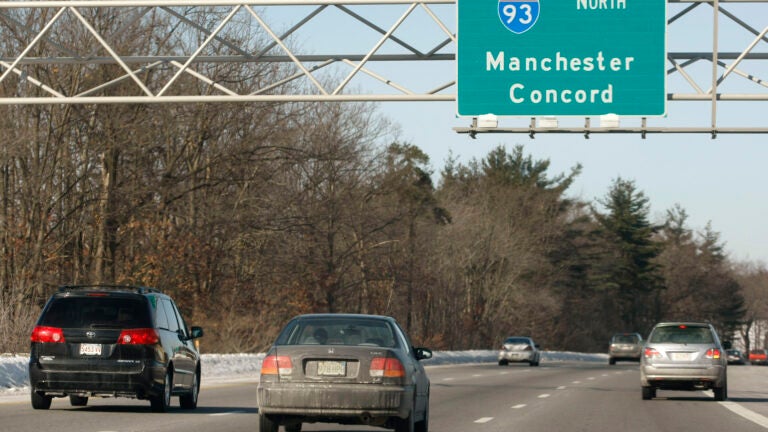The Latest: Court conservatives seem OK with census question

WASHINGTON (AP) — The Latest on Supreme Court arguments over the Trump administration’s plan to ask about citizenship on the 2020 census (all times local):
4 p.m.
The Supreme Court’s conservative majority appears ready to uphold the Trump administration’s plan to ask about citizenship on the 2020 census, despite evidence that millions of Hispanics and immigrants could go uncounted.
There seems to be a clear divide between the court’s liberal and conservative justices in a case that could affect how many seats states have in the House of Representatives and their share of federal dollars over the next 10 years. States with a large number of immigrants tend to vote Democratic.
Three lower courts have so far blocked the plan to ask every U.S. resident about citizenship in the census, finding that the question would discourage many immigrants from being counted.
But on Tuesday, the conservative justices did not appear to share that concern.
__
11:30 a.m.
The Supreme Court’s conservative majority seems untroubled by the Trump administration’s plan to add a citizenship question to the 2020 census.
There appeared to be a clear divide between the court’s liberal and conservative justices in arguments Tuesday in a case that could affect how many seats states have in the House of Representatives and their share of federal dollars over the next 10 years.
Justice Brett Kavanaugh is the court’s newest member, an appointee of President Donald Trump. He suggested Congress could change the law to specifically bar a citizenship question if the legislative branch is so concerned that the accuracy of the once-a-decade population count will suffer.
Three federal courts have blocked the question’s addition, finding that millions of Hispanics and immigrants would go uncounted.
___
11 a.m.
Conservative Supreme Court justices said little as a Trump administration lawyer defended the government’s plan to ask about citizenship on the 2020 census. That could be an indication the court’s majority may be inclined to side with the administration.
Liberal justices peppered the administration’s top Supreme Court lawyer with questions as arguments got underway Tuesday. But they would lack the votes to stop the plan without support from at least one conservative justice.
The outcome could affect how many seats states have in the House of Representatives and their share of federal dollars over the next 10 years.
Three federal courts have blocked the question’s addition. Courts said Commerce Secretary Wilbur Ross violated federal law in the way he went about trying to include the question. The courts found that millions of Hispanics and immigrants would go uncounted.
___
10 a.m.
The Supreme Court is set to hear arguments over the Trump administration’s plan to ask about citizenship on the 2020 census. The question could affect how many seats states have in the House of Representatives and their share of federal dollars over the next 10 years.
Three federal courts have blocked the Commerce Department from adding the citizenship question. Those courts have ruled that Commerce Secretary Wilbur Ross violated federal law in the way he went about trying to include the question on the census for the first time since 1950. The courts found that millions of Hispanics and immigrants would go uncounted.
The lower court judges dismissed Ross’ contention that the question is needed to aid in the enforcement of the federal Voting Rights Act.






